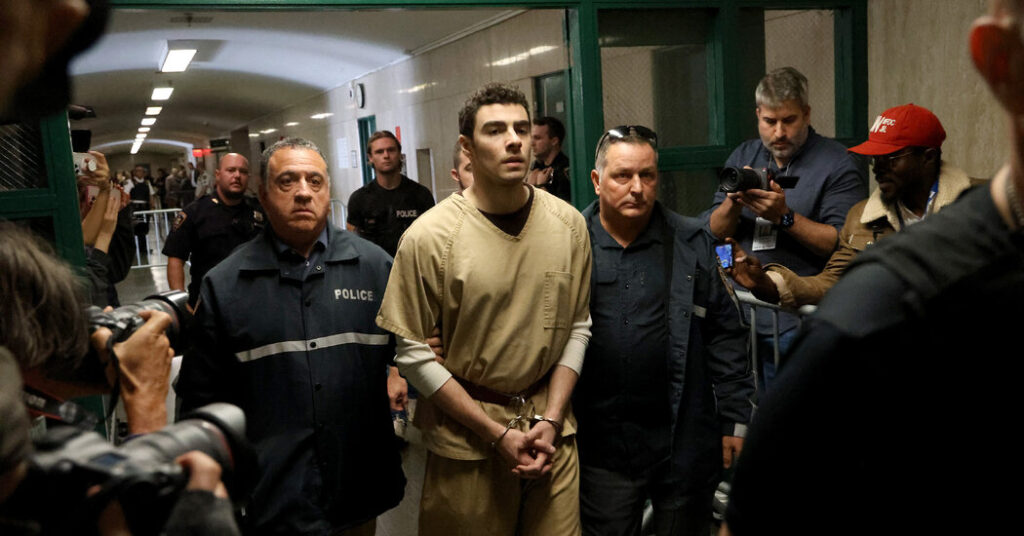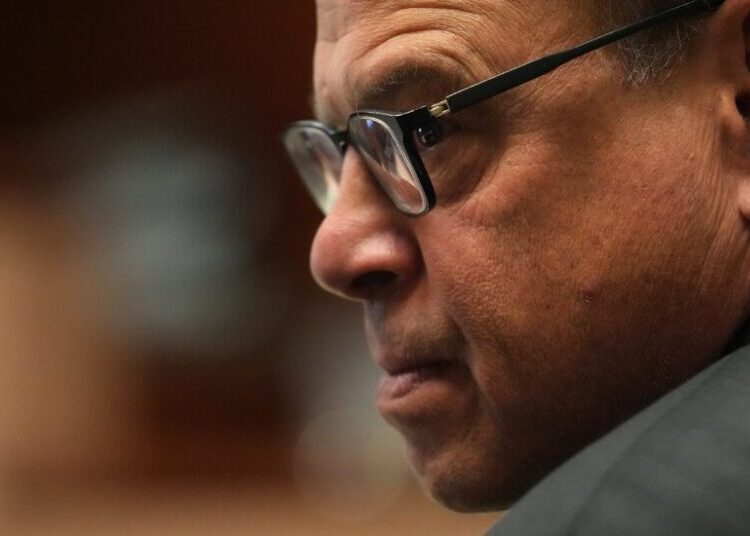Federal prosecutors, in a new court filing on Friday night, defended the government’s decision to seek the death penalty against Luigi Mangione, the 27-year-old man accused of assassinating UnitedHealthcare’s chief executive nearly one year ago outside a Midtown Manhattan hotel.
The government’s arguments came in response to a request from Mr. Mangione’s lawyers that the judge overseeing the federal case stop the government from pursuing the death penalty. The lawyers cited, among other factors, “blatant, intentional and damaging” statements by Attorney General Pam Bondi and other officials that they say will hurt Mr. Mangione’s ability to receive a fair trial.
But the office of Jay Clayton, the U.S. attorney for the Southern District of New York, said in the filing that “publicity — even intense — is not novel in this district” and added that “high visibility cases” are routinely tried there. The prosecutors said that there were ways to ensure that defendants still received fair trials, such as jury questionnaires, individualized inquiries of prospective jurors and instructions that jurors avoid media exposure.
Mr. Mangione is accused of killing Brian Thompson, 50, the chief executive who was gunned down before an investors’ meeting on Dec. 4. Mr. Mangione was arrested five days later at a McDonald’s in Altoona, Pa. The police said they had recovered several items, including what the authorities called a manifesto decrying America’s “parasitic” insurance industry and its system of for-profit health care.
In addition to the federal charges in New York, Mr. Mangione was indicted by the Manhattan district attorney on charges including second-degree murder, which carries a potential sentence of 25 years to life. No trial dates have been set in either the federal or state courts. He is next to appear in state court on Dec. 1.
Mr. Mangione has pleaded not guilty to all of the charges.
In their filing Friday night, prosecutors also asked the judge, Margaret Garnett of Federal District Court, to deny Mr. Mangione’s lawyers’ requests to exclude evidence the defense says was improperly seized in a search of Mr. Mangione’s backpack and statements they say he made without having been administered his Miranda warnings.
Prosecutors argued that because there was a multiday manhunt for a shooter accused of killing “a complete stranger,” officers had been justified in searching Mr. Mangione’s backpack to ensure it did not contain dangerous items before taking it with them. The contents “would have inevitably been discovered” during an inventory search, they added.
The prosecutors also said they were planning to introduce only Mr. Mangione’s initial statements to the police, when officers first asked for his name; they say he answered with a false identity. At that point, the government said, “no Miranda warnings were required.”
Benjamin Weiser is a Times reporter covering the federal courts and U.S. attorney’s office in Manhattan, and the justice system more broadly.
The post U.S. Defends Decision to Seek Death Penalty for Luigi Mangione appeared first on New York Times.




